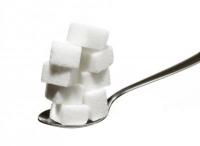On science blogs this week: Sugar, sugar
A major reason this is of interest in these precincts is that Taubes followed the piece up on the Times's Well blog, where he did a long Q&A with readers. From time to time I've talked here about the ways science writing is changing as it digitizes. The Taubes Q&A is yet another example of how writers are using the 'Net to extend their reach. (And also, it appears, their working hours.)
A few bloggers also responded to the magazine piece, the ones I saw with decided lack of enthusiasm. Paul Raeburn, at the Knight Science Journalism Tracker, has been skeptical about past Taubes productions too, like the low-carb diet. About the anti-sugar diatribe Paul concludes:
I don’t know what to think, or what to believe. I can’t be sure that Taubes gave me the straight story, because he has such strong personal views – and because he’s trying to persuade me, not enlighten me.At NPR's health blog Shots, Nancy Shute is deeply dubious too. I suspect she's also horrified by Taubes's meat-heavy regular food intake — a daily dose of (large quantities of) eggs, bacon (and sausage!), cheese, burgers, topped off with a pound of steak at one sitting. Although astounded by Taubes's capacity, I'm more sympathetic to his food choices because of personal experience. A low-carb high-meat diet is the only one I'm able to lose weight on, and I discovered that long before Taubes advocated it. So I'm inclined to wonder if he isn't on to something with sugar, too.
ON THE FIRST ANNIVERSARY OF THE BP GULF OIL SPILL, THE WATERS ARE STILL TROUBLED. The first anniversary of BP's Gulf Oil spill has prompted a flood of blogging on the still-parlous state of the Gulf of Mexico. At Dot Earth, Andrew Revkin rings a silent bell for the 11 who died. At Green, John Broder sums up briefly, provides links to New York Times coverage of the anniversary, and describes how the president marked the event. At Scientific American's guest blog, Allie Wilkinson explains why the dispersed oil poses a long-term threat to seafood.
At the Pump Handle, a blog about public health, Elizabeth Grossman provides a thorough but fairly concise summing up. She concludes:
Enormous amounts of information have been and continue to be gathered about the ecological impacts of the oil .. .Systemic reform of the industry is key to preventing future off-shore drilling disasters. Key to preventing harm that can compound the effects of such disasters — industrial or natural — is ongoing, transparent and full accounting of all those involved in clean-up and response work, including details of hiring, training, contaminant exposure. and health monitoring. Doing so should help improve response-worker health and safety in any future comparable emergencies, particularly any that, like the BP/Deepwater Horizon disaster, may affect such a large extent of geography.
A very tall order.
Climate Progress, where reports of progress are often in short supply, marked the occasion with several posts. I've selected only a few to mention here. There's a summing-up-and-next-steps video with Michael Conathan, director of ocean policy at the blog's backer, the Center for American Progress. Jorge Madrid and Kiley Kroh discuss legislative proposals for fixing the Gulf. There's a report on BP's recent political activity, Daniel J. Weiss and Valeri Vasquez tally up the human costs of fossil fuels. Also a take on 10 reasons why Kate Sheppard of Mother Jones is still pissed off about the BP oil spill. Number 1: "BP is gunning to get back to drilling in the Gulf of Mexico."
EARLY DIAGNOSIS OF ALZHEIMER'S DISEASE. Guidelines for diagnosing Alzheimer's disease have been updated for the first time in more than a quarter century. But it's not clear that they're particularly clear. The guidelines sort of approve of new ways of detecting early hints that Alzheimer's may be on the way before symptoms are noticeable. But the guidelines direct that the new tests are to be used for research only, not in clinical settings. That's because they are not yet really reliable. Also, in the absence of good therapies, what's the point of a very early diagnosis, which is likely to blight a patient's life for no purpose?
Greg Miller's explanation at ScienceInsider makes the decision to release the guidelines sound a little reasonable even though there's no patient benefit to early diagnosis because there are no effective early treatments. The point, he says, is to make it easier to develop early treatment. The hope is that taking steps before symptoms are severe will slow down Alzheimer's. That's a goal that has eluded researchers so far, despite new drugs that were thought to be promising.
It's just barely possible that money is a factor in devising the new guidelines that seem to have no present value to Alzheimer patients or their families. Tinker Ready takes that view at Boston blog, one of the Nature network blogs. She points out that health-related nonprofits often rely heavily on pharma funding. The Alzheimer's Association, a guideline co-sponsor, is one of them. How much funding is unknown because they're not required to report it, she notes. But drug companies are said to have more than 100 Alzheimer's drugs in various stages of development

